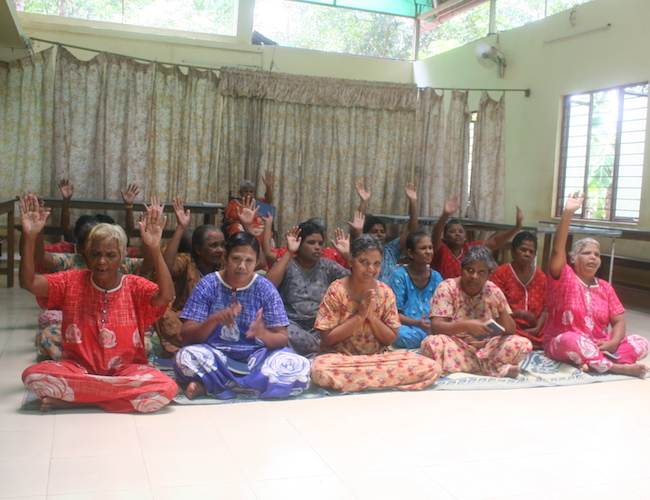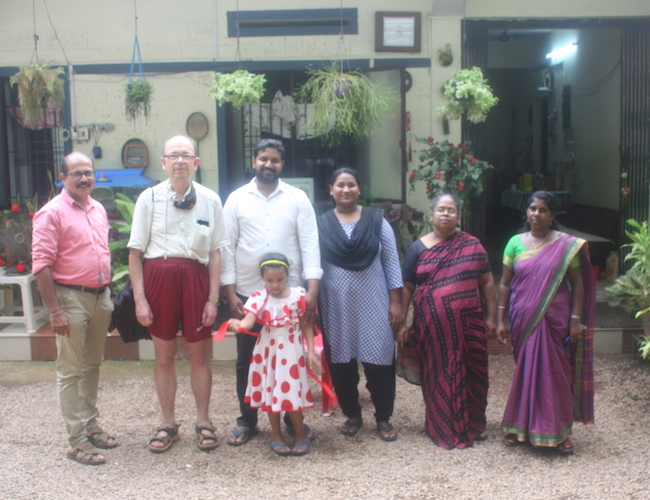Hope for the hopeless
On my first visit to India, I quickly realised that there are only three rules of the road out here:
1. Any vehicle overtaking takes priority over any vehicle being driven sensibly
2. Bigger vehicles have priority over smaller vehicles
3. In the case of vehicles of the same size, the vehicle with the loudest horn wins.
Nothing has changed in the intervening 15 years. And the crazy thing is that it works. Sort of.
Back to today, it was time to visit Salini, Valsala and Sanil at Thanal (Hope) House, a refuge home for destitute women and women with psychiatric problems. Many have been rescued from the streets. Others were abandoned or disowned by their families.
We arrived in time for the Sunday morning service that Sanil and Salini lead each Sunday. It was a simple affair, with prayers, Bible readings and singing. Many of the women joined in and contributed.

Then it was time for lunch and catching up.

Philip, Edmund, Sanil and Chrissy, Salini, Valsala and Usha (a social/medical worker who joined us for the day)
Covid has caused great problems for Thanal. The home was isolated in a vain attempt to stop Covid getting in, meaning that they could no longer receive gifts in kind (usually food). At the same time, their local supporters mainly found themselves out of work, and unable to help. Churches that had contributed in the past deployed their reduced resources elsewhere. Only HHI and Pilgrims Highlands Church (the church in Trivandrum that built the original building) were able to continue funding them. The government has done nothing to help.
Despite everything, the team kept Thanal House going. Food portions were reduced, and “non-veg” meals were limited to once a week. And they have survived. We hope that, as Covid recedes, they will be able to raise more money locally. For the time being I left GBP56 to allow them to provide a second meat meal each week – probably chicken based – this month.
For the time being they are not allowed to accept more residents – a Covid rule. A few of the ladies have died, and one ran away, so they have just 17 at the moment. But the General Hospital Ward 9 has 11 more lined up to be transferred across just as soon as regulations allow.
The residents do a lot more around the home than they used to. That both benefits the women – they have something to do, and they have the self-respect of contributing – as well as providing relief for hard-pressed Salini, Sanil and Valsala.
And there are various exciting things that we could do to make the home more self-sufficient as well as providing more outlets for lthe women’s creative energies. One possibility would be for them to grow more of their own food. But if they try at present, thieves steal it. They need a secure wall around the land. This would cost about GBP 10,000, money that we do not have at the moment.
I am hoping that we can increase our contribution to the running costs, at least on a temporary basis, allowing them not just to survive but to thrive. Of course, that will depend on us having the funds available.
